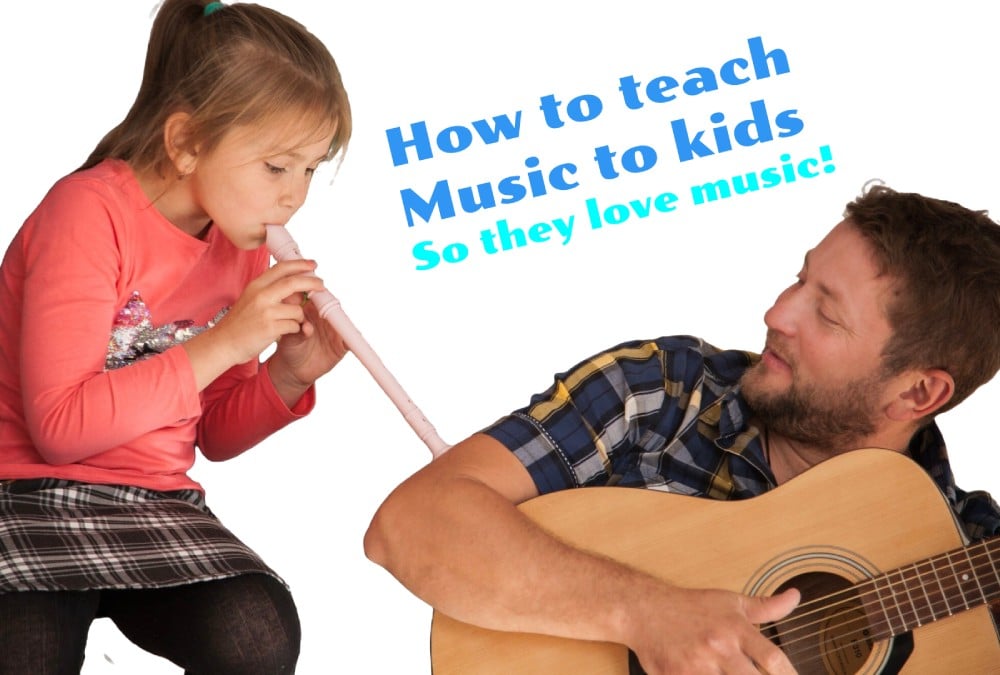
There is no shortage of studies about the benefits of learning a musical instrument. Pleasure, improved concentration, self-confidence, discipline, stress reduction and the list goes on. Parents know that learning an instrument is good for their child, but more often than not, children resist taking lessons, hate to practice and quit. For the aforementioned benefits to really take effect in teaching music to children, a child needs to persist in playing an instrument for an extended period of time. This article will help parents and music teachers understand how to teach music to kids so that they fall in love music and don’t see it as just another chore.
#1: Learning music with games
How to teach music to kids? Teach using games. Often great teachers know how to disguise learning objectives inside fun games. For example, one of the ways you can teach children how to learn the names of the piano notes is by playing a fun game. The following game uses toy animals and dice (Play the YouTube to see it in action).
- Each player rolls the dice and moves their animal up the keyboard based on the number they rolled.
- The child then tries to identify the name of the note and the first one to get to the end of the keyboard wins.
These types of activities make children feel like learning music is fun and not a chore. Activities like this should be sprinkled in with regular topics such as learning to read music. Discover more fun games by reading our article piano and music games for kids. Ask a potential teacher “What kind of activities do you use to make learning music fun?”
#2: The role of the child’s music teacher
The main role of a good music teacher is to help children develop a lifelong passion and love for music while simultaneously instilling a growth mindset into the child (more on what a growth mindset means later). The first question I would ask a potential music teacher is “what is your strategy for helping my child learn to love music?”
Build a Loving Relationship with the Child
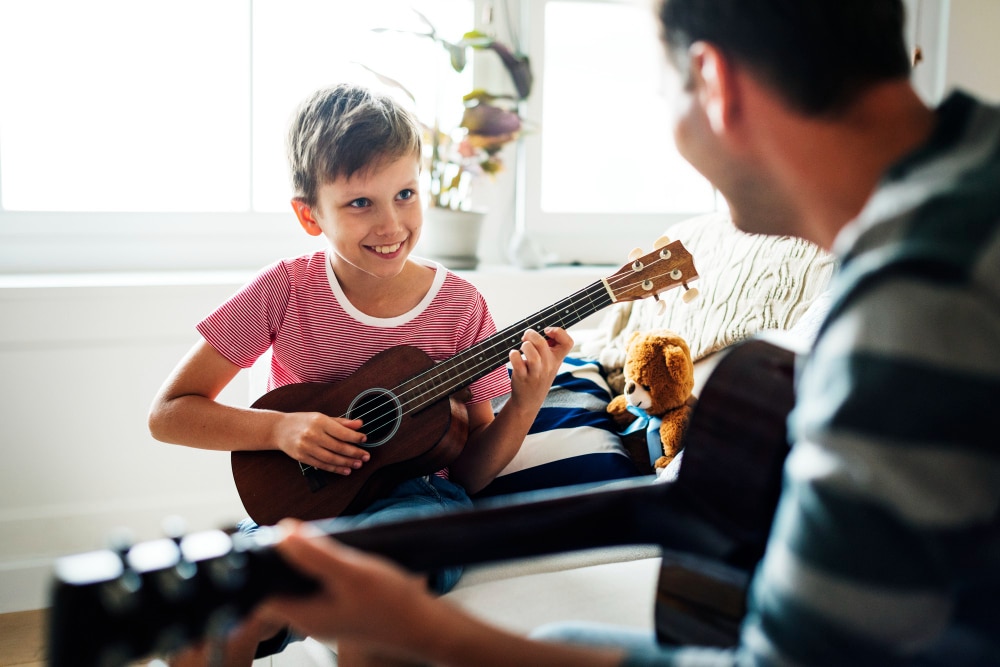
The bond that a child develops with their music teacher is very important. I believe the best student/teacher relationship to have with a child is the one of a friend/trust-worthy helper. A great teacher has warm human qualities that help develop trust. A friend doesn’t shame, deceive or get angry. A good friend is understanding, empathetic, light-hearted, and patient. These are the qualities that a good teacher should aim to have with their students. Many teachers act more like drill sergeants than kind, down-to-earth human beings. A good teacher should establish a sense of discipline and encourage the child to practice, however, this should not be done forcefully. After all, kids are often overloaded with homework and other extracurricular activities so the idea is to motivate kids to go to their instrument because they like it and not because they have to (more on practicing strategies later.) If children learn to view their instrument as a source of pleasure and fun, then they are more likely to continue doing it for rest of their lives.
In the book PEAK, Ericsson writes that one of the characteristics that many world-class musicians share in common is that when they were young they had music teachers that made them feel like learning music was fun. Their teachers didn’t pressure or force them to practice but rather helped them develop a deep and intrinsic love of music. They were encouraged to practice, but it was always out of choice. These teachers helped their students find material that they enjoyed so that they developed a positive relationship with music and made then look forward to their lessons. I believe this is the best approach when teaching children because ultimately the motivation for playing music needs to be intrinsic.
#3: Let your child choose their preferred instrument
“If you want your child to be motivated to play an instrument, music needs to be different than other educational subjects,” says Bobby K. from Guitar Chalk. “Your child shouldn’t see music as a forced discipline, like Math or Geography.” One thing that will help motivate your child is to let them choose which instrument they would like to learn. When I was a kid, I took piano lessons, but I never practiced. It wasn’t until I started playing the drums that practicing became a regular activity. I gravitated toward it naturally. Every day after school, I would run upstairs and look forward to banging away on my drums as a way to blow off steam. Piano felt like just another discipline, but the drums was a source of fun and excitement.
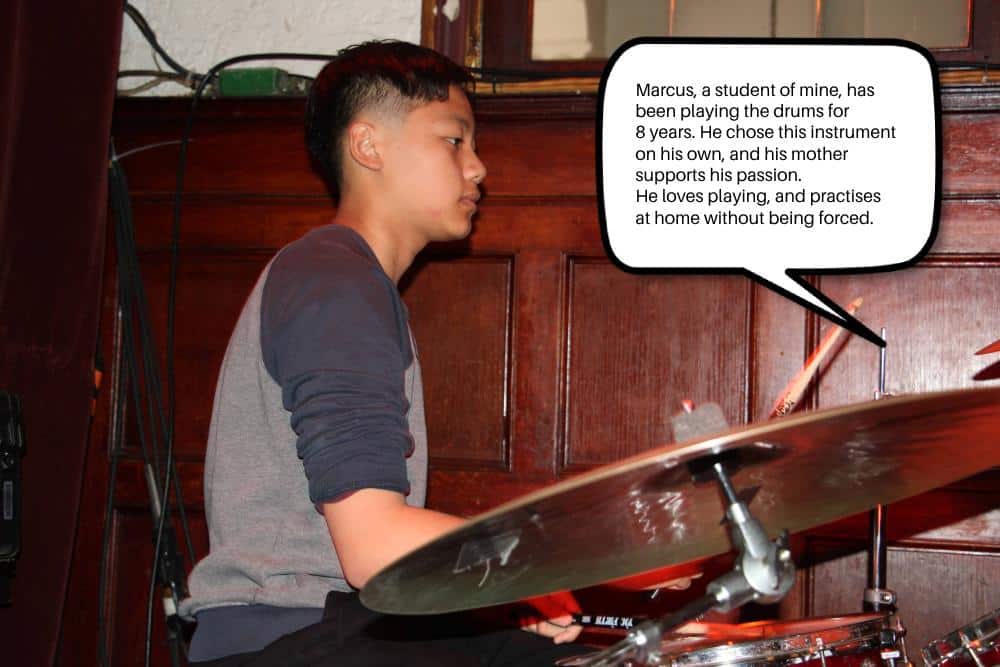
It can be expensive and time-consuming to continually find new music teachers and buy instruments in order to figure out which instrument your child really enjoys. One solution to this problem is to find a qualified teacher that is proficient in several instruments. You can then let your child try out different instruments for 3 or 4 months at a time and then see if they would like to continue on that instrument or try a different one. You can also rent instruments with the option of buying while they are learning that instrument in their lessons. You can then see if they gravitate toward that particular instrument naturally at home. Another benefit to this approach is that your child doesn’t have to continually start a new relationship with a teacher every-time he or she tries a new instrument.
#4: Let children set their own practice schedule
Should the child be forced to practise?
How to get a child to practice their instrument outside of their lesson has always been a challenging topic for me. Some people feel that children need to be forced to practice in order to develop discipline and that is this is the only way for how to teach music to kids. The problem with this approach is that many kids develop a negative relationship with their instrument. Having an outside source forcing them to do something makes them view the instrument as a chore rather than a source of fun and excitement. More often than not, this approach leads children to quit or worse to dislike the instrument.
Should the child decide on their own?
The opposing view is that children should only practice if they are naturally drawn to it. The problem with this approach is that music does require discipline and the ability to delay gratification, which children often don’t possess. Therefore they won’t naturally gravitate toward the instrument until they start developing some more advanced abilities or at least an understanding of the relationship between practice and achieving their musical goals and desires.
A balanced perspective
Thinking about these two extremes, I’ve come to a more balanced perspective that. lies somewhere in the middle. I now let my students determine their own practice schedules. For example, at the end of each lesson, we write down which days he or she would like to work on their piece of music. I ask the child to sign their initials next to the scheduled date after they’ve successfully completed their practice session. I also try to help them understand the relationship between achieving their goals and the need for practice. Parents are important in this process and need to set reminders for the child to practice, however, their reminders carry more weight because it was the child in the first place that decided how much and when they would practice. At the end of the week, if the child follows through on their goals or at least partially, I enthusiastically tell them how happy I am for them and offer a small reward like a colourful sticker. If they don’t follow through, that is okay too and I don’t get angry at them. I simply tell them that if they want to improve, practicing is the only way.
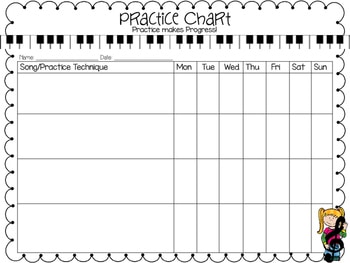
Ask a potential music teacher: what is your view on practice? How do you help motivate your students to practice?
#5: Using music books but also going off-book
Going off book, example 1:
If you’re still wondering how to teach music to kids, some of the best and most exciting moments happen when unique musical opportunities present themselves. On one occasion a young student of mine and I were trying to figure out a song for his upcoming recital. As it turned out, his mother sang in their church, so we chose a song that he could learn and that his mother could sing. It was a song that both of them liked, and on the day of the recital, they presented their song. Their performance stood out as the most interesting song of the recital!
Example 2:
On another occasion, I was teaching piano to a young 4-year-old boy as well as his father. It was challenging to teach such a young child because, at his age, concentration levels are not very developed. I was teaching him Old McDonald Had a Farm, but I found it hard to get him to play the song more than one-time through. I eventually showed his father a simple duet part that he could play along to accompany him. The moment they started playing together, fireworks went off. They played that song over and over again and had tons of fun!
The moment that music becomes a communal or family activity is the moment that it all makes sense and becomes much more enjoyable! Find a teacher that is willing to go off book and encourage students to bring music outside of the classroom and into their real lives.
As a potential teacher: Do you allow your students to learn material that isn’t in the book? How do you encourage students to bring music into their communities?
If you’re looking for good music book suggestions, read The 5 Best Guitar Books for Kids or The 5 Best Piano Books for Kids.
How to teach music to kids
I believe that if you apply the 5 rules listed above, your child or student will have a much greater chance of loving music. So go ahead and try them out!
Elijah is a university-educated drummer with extensive experience for both teaching and musical performance. Since completing his Bachelor of Music degree at Concordia University in 2010, he has played music across each province in Canada and in more than 20 countries around the world.

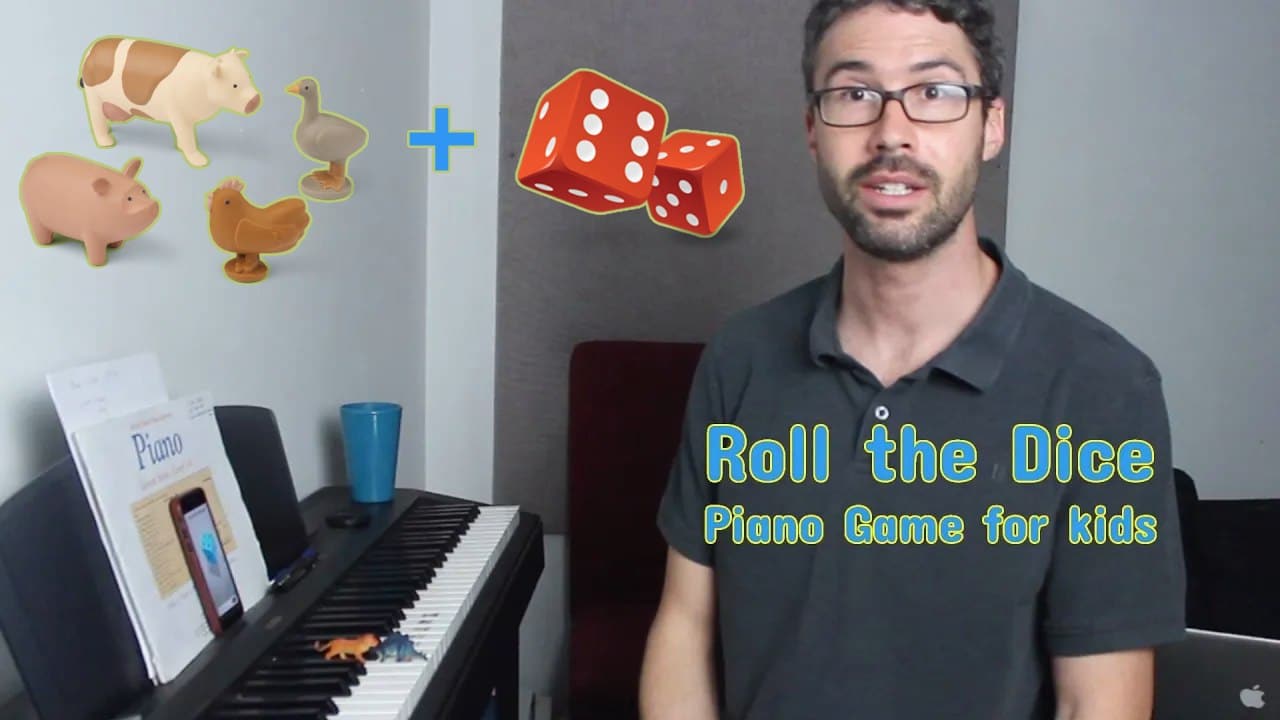

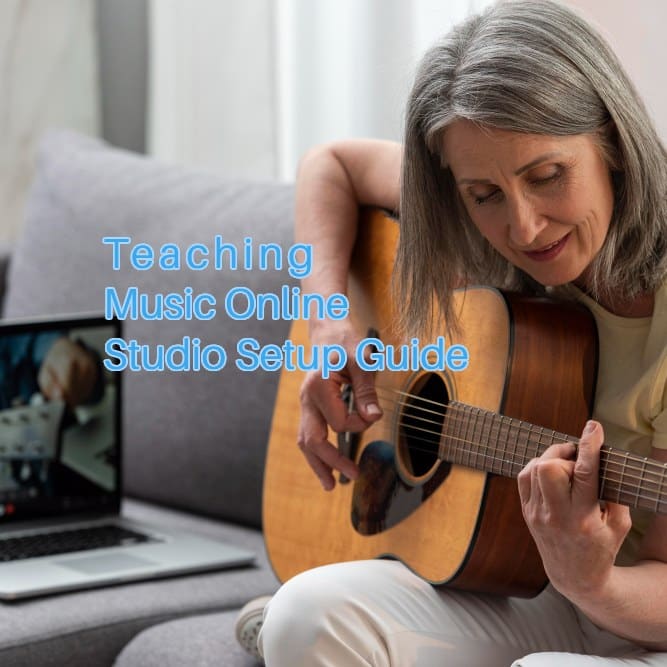
You’re welcome! Glad you liked it.
Pingback: Best Piano Books for Beginners (Kids) - Piano Teacher Recommended